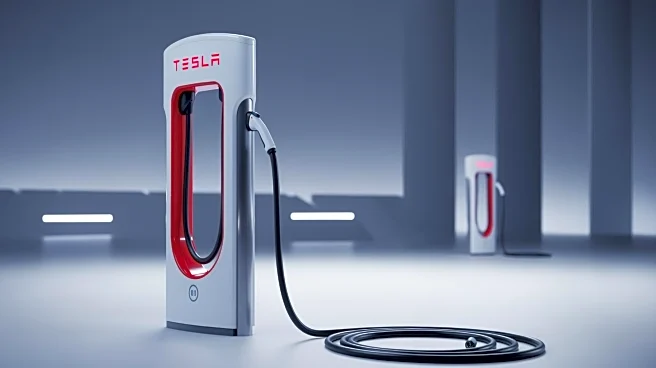What's Happening?
Tesla's market capitalization has reached $1.4 trillion, surpassing the combined market caps of the next 20 largest automakers, including Toyota, BMW, and Ford. Despite this, Tesla's revenue and EBIT are significantly lower than these companies combined.
Tesla's operating margins have been declining over the past three years, raising questions about the sustainability of its market valuation. CEO Elon Musk has ambitious plans for Tesla, including developing robots to address global issues like poverty and healthcare.
Why It's Important?
Tesla's high market valuation compared to its revenue and earnings highlights the speculative nature of its stock price. This situation raises concerns about a potential market bubble, which could have significant implications for investors and the broader automotive industry. If Tesla fails to deliver on its ambitious goals, it could face a market correction. Conversely, if Tesla succeeds, it could revolutionize the automotive and technology sectors, setting new standards for innovation and market leadership.
Beyond the Headlines
The disparity between Tesla's market cap and its financial performance underscores the influence of investor sentiment and future expectations on stock valuations. This situation reflects broader trends in the tech industry, where companies are often valued based on potential rather than current performance. The outcome of Tesla's strategic initiatives could have far-reaching effects on market dynamics and investor behavior.















